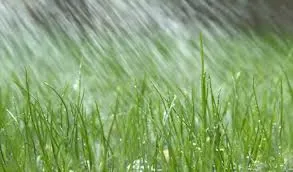Well, it’s been another rainy month here in Gainesville, Florida. Not just a little rain, but record-breaking rainfall for two months in a row. Summer months like this always remind me to do two things:
1 - Ask God to "Please don't let it rain on the weekend when I want to be outside." Plans for football games, little league games, Bar-B-Q get-togethers, Ginnie Springs, etc can all get ruined with a day of lighting and rain.
2- Being a Gainesville Irrigation technician, it reminds me about the importance of rain sensors on your sprinkler system. It has been Alachua County code for a while that all new landscape irrigation systems have a rain sensor installed and active. However, I frequently encounter systems with no rain sensor at all or old sensors that are not working anymore.
Have you ever driven down the street and noticed a sprinkler system running while it is raining or the morning after it rained all night? I’m sure you have, maybe even your own! Those are dollars being wasted for no reason.
Rain sensors automatically shut off your system when a certain amount of rainfall has accumulated, which saves your water as well as problems in your landscape such as fungus and disease from over-watering. The sensors also continue to suspend automatic watering until the sensor disc has dried out. The disc is set to dry out at approximately the same rate as the soil. So, depending on the amount of rain we get and the sensor setting, your system could be off from just a day to 3 days (or more if it continues to rain).
The benefit of it acting like your landscape soil is that it doesn't only turn the system off when it's raining. If it rains heavy at 5pm this afternoon, but the soil is still wet in 2 days when the irrigation is scheduled to turn on, it won't let it waste the water.
A rain sensor is extremely beneficial for systems that use GRU where you have to pay by the gallon for your water use. You could easily save hundreds of dollars per year with a proper working rain sensor, especially this year. Many city and municipal water supplies also charge by the gallon for sewer at a higher rate than the initial water usage, so this really more than doubles your water bill. I know, it doesn’t seem fair to be charged sewer for Gainesville lawn & landscape watering, however it is how it works unless you have a seperate irrigation meter.
If you already have a rain sensor, test to make sure it is working properly. There are a couple ways you could test it…but the easiest is to try and run your system manually while it is raining. It shouldn't turn on if your rain sensor is working properly.
If you don’t feel like testing your sensor or hooking up a new one yourself just call a licensed Gainesville irrigation contractor. The price of the wired sensor is around $50 and the installation cost is usually one service call ($125 in 2018), but it typically pays for itself within 6-8 months of use. Just the past two months alone has paid for many customers! In addition, the service call can be as low as $20 for GRU customers!
That's right, if you are on GRU water and haven't used your irrigation rebate, you automatically get a $75 rebate for having the rain sensor installed and your system checked out! Just call our office today (378-5296) to schedule your appointment and print this rebate form out to save the $75. Otherwise, you'll just go on paying those expensive GRU bills because your irrigation system runs more often than it should, and no one wants to throw money down the drain like that. Literally. **This rebate has expired as of 2013.***


